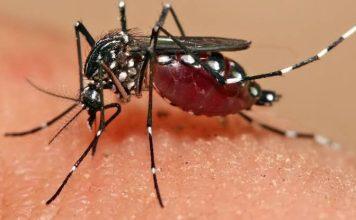Mosquito-borne diseases are infections spread through the bite of infected mosquitoes carrying various pathogens, including malaria, dengue, West Nile virus, Chikungunya, yellow fever, and Zika.
These diseases cause approximately 700,000 deaths annually and are transmitted by mosquitoes which belong to the Culicidae family.
Female mosquitoes use their proboscis to draw blood from hosts for egg production by injecting saliva that prevents blood clotting and causes itching and red raised wheals.
Employers are responsible for protecting workers from mosquito bites, especially in areas prone to these diseases.
Measures include avoiding stagnant water, clearing ditches, and using insect repellents. Employees should receive training on prevention and recognition of mosquito-borne diseases and wear protective clothing when working outdoors.
Different mosquito species such as Aedes, Anopheles, and Culex transmit diseases like chikungunya, dengue, malaria, and West Nile fever. These mosquitoes have varying feeding habits and preferences for humans or animals.
Malaria, caused by the parasite Plasmodium and transmitted by Anopheles mosquitoes, is a prevalent and dangerous infectious disease worldwide. It affects a significant portion of the global population, causing millions of cases and hundreds of thousands of deaths annually.
The disease typically presents with symptoms such as fever, headache, and chills, with children under five years old being the most affected group, especially in Africa.
Cerebral malaria is the most lethal form, with high mortality rates, and survivors may experience long-term neurological and cognitive issues.
Malaria prevention strategies recommended by the World Health Organization include vector control methods and vaccines.
Dengue, caused by the dengue virus spread by Aedes mosquitoes, is a common viral infection that affects millions of people each year, resulting in a significant number of fatalities.
Yellow fever, another mosquito-borne disease, can lead to severe symptoms and even death in some cases.
The Zika virus, a recently identified pathogen, typically causes mild symptoms such as fever, joint pain, and rashes. However, it poses a significant risk during pregnancy as it can harm the developing fetal brain, leading to neurological defects including microcephaly.
Spread of the Zika virus can occur through sexual contact, blood transfusion, and organ transplantation. The virus initially spread rapidly in the Americas, particularly in Brazil, and continues to circulate in regions like Florida and Texas.
Chikungunya virus infection is known for its severe consequences, especially persistent joint pain lasting for weeks or even months.
Symptoms of acute infection include fever, pain, and rash. This virus currently affects tropical Africa, Asia, and Europe, with some cases reported in the USA. To prevent infection, it is recommended to use insecticide-treated mosquito nets and maintain screened rooms as the mosquitoes responsible for transmitting the virus are active during the day.
Unlike many other mosquito-borne viruses, there is a safe and effective vaccine available to protect against yellow fever. The main challenge is to rapidly vaccinate people in affected areas to control the spread and ensure an adequate supply of the vaccine during outbreaks, as it takes about 12 months to produce more doses.
The West Nile virus was first identified in Uganda in 1937 and a lethal strain from Israel and Tunisia caused a major outbreak in New York City in 1999. While most cases are mild or asymptomatic, some may develop West Nile encephalitis, a potentially fatal complication. The virus is transmitted by mosquitoes from infected birds to humans, not directly between humans.
Japanese Encephalitis infects tens of thousands in Asia annually, with severe cases leading to death or permanent brain damage. A live attenuated vaccine is commonly used in endemic regions.
Lymphatic Filariasis, known as elephantiasis, is primarily caused by either the filarial worm Wuchereria bancrofti or Brugia malayi in 90% of cases.
Mosquitoes from various genera ingest blood containing the larval forms of the worm from infected hosts and transmit them to the next victim through their bites. These larvae then mature into adult worms in the lymph vessels, causing blockages and disrupting the normal circulation of lymph in the lower extremities.
As a result, individuals affected by the disease experience significant skin and tissue thickening due to the swelling caused by the accumulation of lymph fluid. This leads to various complications such as infections, irritation, and itching.
Elephantiasis can also affect other areas of the body, such as the scrotum or breasts, resulting in lymphedema. Acute episodes of inflammation are common due to secondary bacterial infections or immune responses to the parasite.
The consequences of this disease include pain, severe disability, and social stigma. Treatment involves annual chemotherapy, with global efforts reducing the number of cases by three-quarters since 2000. However, approximately 50 countries with nearly 860 million people remain at risk for this debilitating condition.
